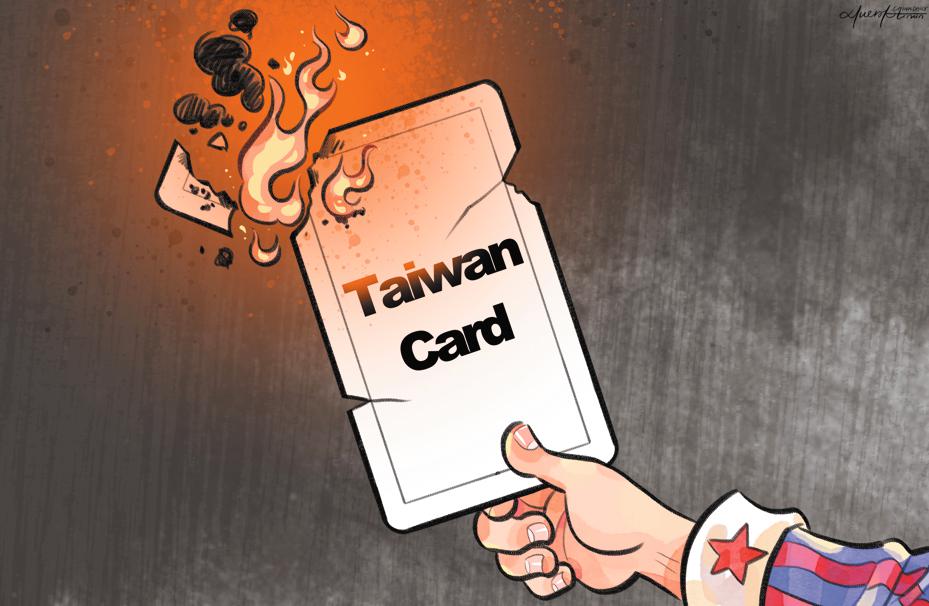Next House speaker should never play fire again


There's a deadlock over election of the US House of Representatives' speaker because of the interparty fighting and the Republicans' failure to elect a speaker after Kevin McCarthy failed to overcome opposition from the right wing of his party. The House voted to adjourn for the day Thursday after Kevin McCarthy was blocked for the 11th time in his bid to become speaker.
McCarthy is known for his hawkish stance on almost every issue. Yet many ultra-conservative representatives criticized him for not being conservative or harsh enough, which is both a surprise and a dangerous sign.
US democracy is characterized by bipartisan and intraparty fighting, with the Democratic and Republican parties opposing each other on every issue except on tough policies toward China.
But no matter who is elected the new US House speaker, he or she should not play the Taiwan card to fulfill the United States' narrow political goals as Nancy Pelosi did. In total disregard of Beijing's strong opposition and solemn representations, Pelosi visited Taiwan on Aug 2 last year as the then US House speaker. Her visit not only undermined the political foundation of Sino-US relations, but also violated the one-China principle and the three Sino-US joint communiqués. Worse, it sent a wrong signal to separatists on the island, casting a shadow on the peace and stability across the Taiwan Straits.
However, the fact is, no matter how Washington and the island's ruling Democratic Progressive Party collude, they cannot change the fact that Taiwan is an integral part of China, and the Chinese people will resolutely defend the country's sovereignty and territorial integrity.
US and Taiwan officials plan to hold trade talks in Taipei, and Washington is likely to send a delegation, led by Assistant US Trade Representative Terry McCartin, and officials from other government departments for the four-day meeting starting Jan. 14.
If the US really believes in free trade, it should drop its protectionist tariffs on the imports from some economies including the Chinese mainland, and desist from sending any wrong signals that would prompt the DPP to assume that the deepening of trade ties with the US means the US supports the DPP's provocative moves.
US politicians, whether in the administrative branch or the Congress, cannot deny the fact that in 1979, the US government made clear in the China-US Joint Communiqué on the Establishment of Diplomatic Relations that "the United States recognizes the Government of the People's Republic of China as the sole legal Government of China, and the US will only maintain cultural, commercial and other unofficial relations with the people of Taiwan".
As an important part of the US government, the Congress is obliged to abide by the one-China policy the US government vowed to follow and avoid any official exchanges with Taiwan. And US politicians should never try to hollow out the one-China policy, because it directly impacts the political foundation of the two countries and could force Beijing to take countermeasures.
UN General Assembly Resolution 2758 of 1971 made it clear that there is "only one China in the world; Taiwan is an inalienable part of China's territory; the Government of the People's Republic of China as the sole legal Government of China".
Pelosi's visit to Taiwan caused the biggest damage to Sino-US ties in 2022. And the DPP's refusal to abandon its "Taiwan independence" agenda has intensified tensions across the Straits.
But despite the anti-China forces' efforts to muddle the waters across the Straits, they cannot change the trend that the two sides of the Straits will ultimately be reunified and together realize national rejuvenation.
The author is an associate professor at the national security education institute, University of International Relations. The views don't necessarily represent those of China Daily.
If you have a specific expertise, or would like to share your thought about our stories, then send us your writings at [email protected], and [email protected].

































